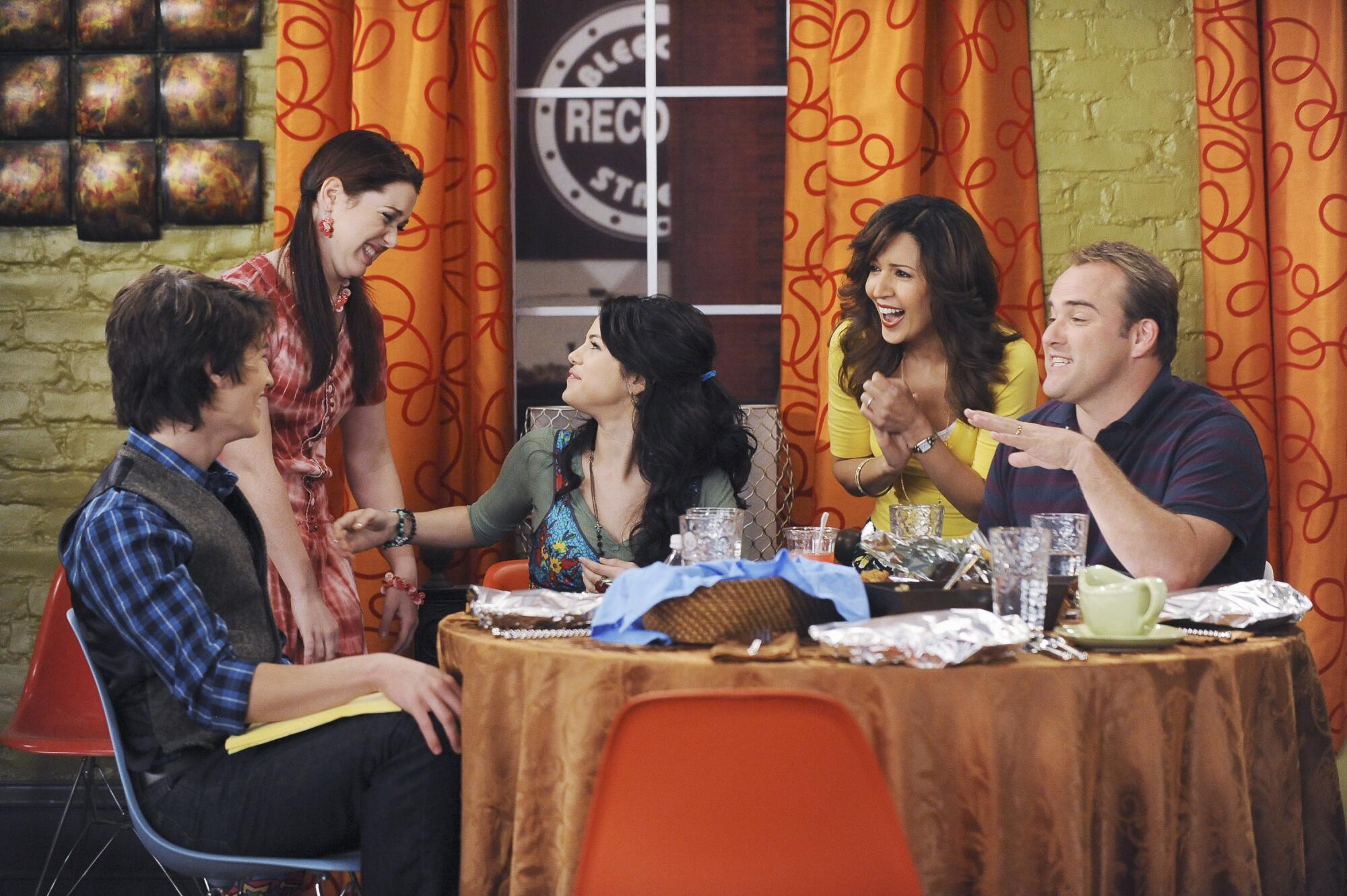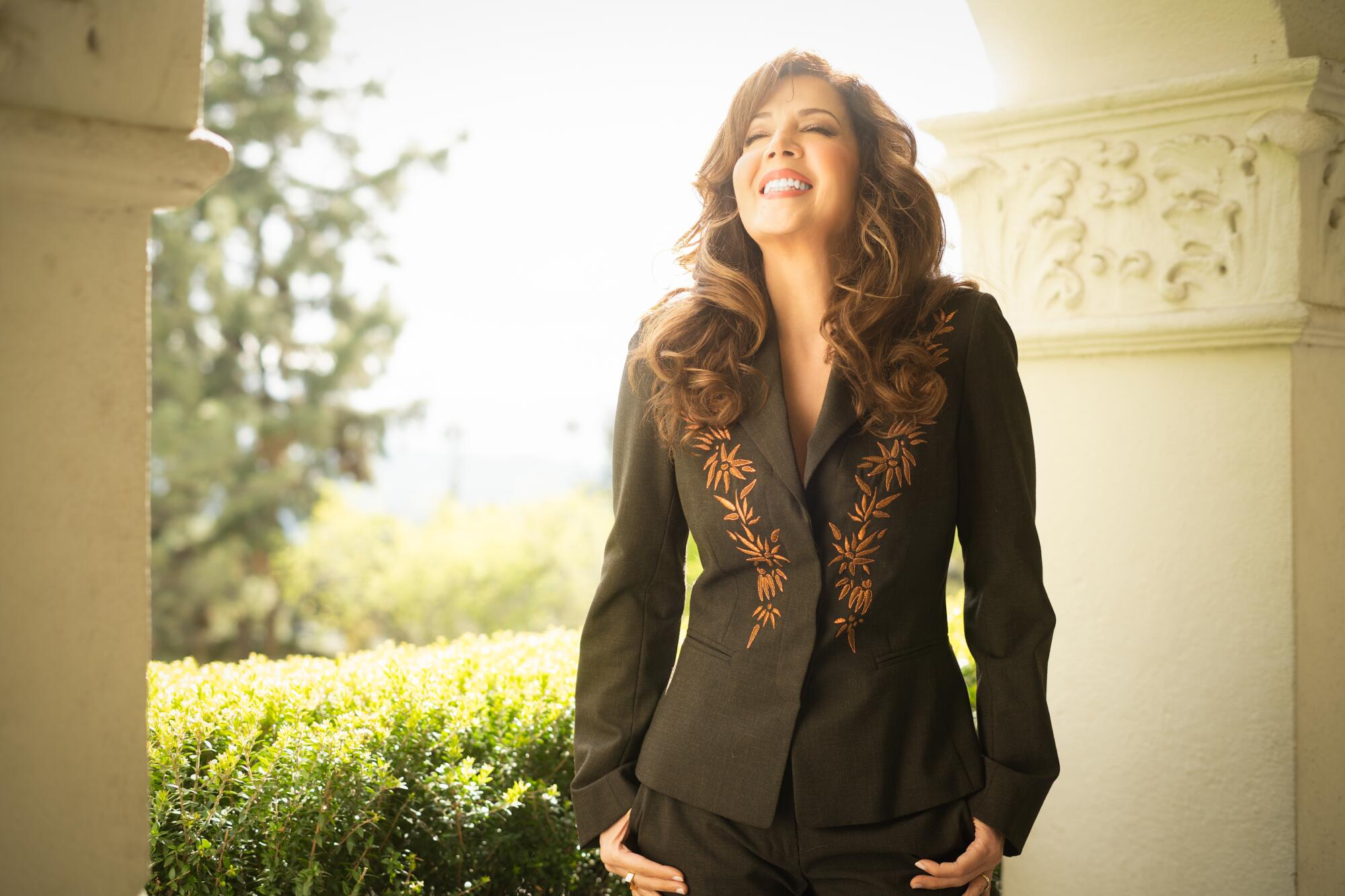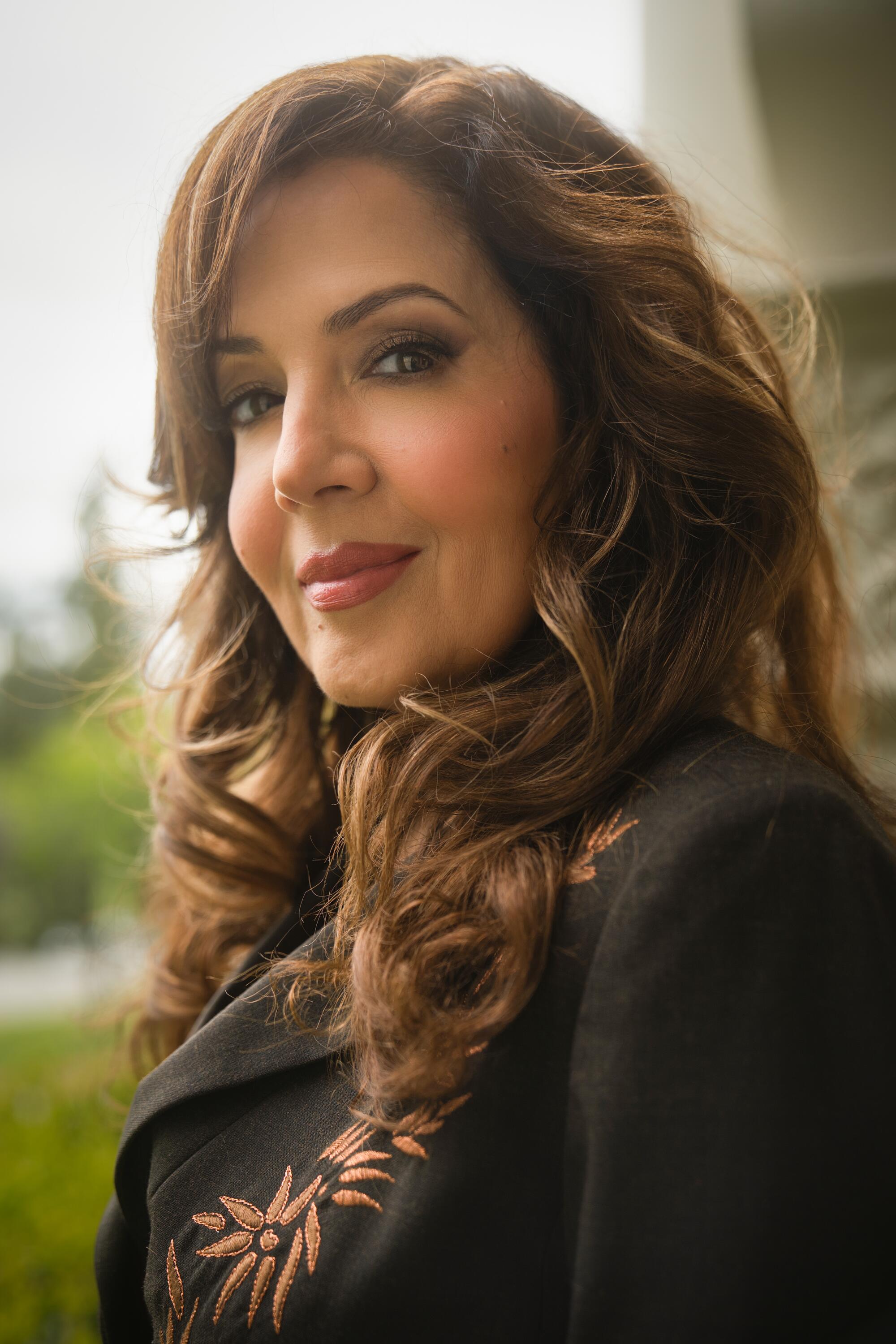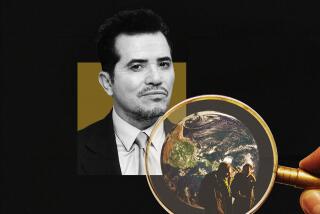
Maria Canals-Barrera is best known for being your favorite television mom. Her most prominent roles include Theresa Russo in the Disney Channel family sitcom “Wizards of Waverly Place” as well as Connie Torres in “Camp Rock” and “Camp Rock 2: The Final Jam.”
She is also the voice of Hawkgirl in “Justice League” and “Justice League Unlimited.” She voiced Sunset Boulevardez in the Disney Channel animated series ‘The Proud Family.” On Nickelodeon, she was the voice of Paulina on “Danny Phantom.”
Canals-Barrera has been the voice of our childhood. For many of us, she was one of the first Latinas we saw on American television.
Early this year, actor David Henrie of “Wizards of Waverly Place” shared an Instagram post of a pilot script, confirming a “Wizards” reboot: “The Russo’s are excited to become a part of your family, once again, but we’ve grown. 2024, the year magic comes back!”

More recently, Disney announced in an Instagram post that the reboot will be released this fall. “Making magic, then and now 🪄,” the caption read. “The new Wizards of Waverly Place series is coming this fall!”
Henrie reprises his role as Justin Russo and will executive produce the series, with Selena Gomez returning to guest star in the pilot and be an executive producer. Jake T. Austin will return as younger brother Max Russo and David DeLuise returns as father Jerry Russo.
We spoke with Canals-Barrera on her experience as a Latina actress, motherhood, “Wizards” and the state of on-screen Latino representation.
This interview has been condensed and edited for clarity.
How did you get your start with acting? Who were your influences growing up?
Acting was always a passion that I followed ever since I was really little. I think my biggest influence was my mother. My mother was an amazing storyteller. Every time she told a story, she would relive every moment as if it was actually happening again. She was just a natural, brilliant actress really. And I just remember always wanting to be in the shows in elementary school. I loved making people laugh, I loved doing impressions.

You were the first on-screen Latina mom in American television for so many of us. What is it like playing mothers? And what is it that attracts you to playing those roles?
First of all, I have to tell you how honored I am to be one of the first Latin American mothers on American television. It’s not something I set out to do, but it’s something I never pushed against. To me, there’s nothing more important than mothering. Nothing. Because that’s the legacy that you leave behind. Your children are what last. So I’m honored to play a mother and to be a mother. So many people come up to me every single day and tell me the sweetest things, like “you were my childhood mom” or “I wish you were my mom.” Or “you are my childhood.” It is such an honor I feel that I have been blessed with that gift and that influence to just love on people that see me as that representation of a mom growing up. I really love it.
What can you tell us about the “Wizards” reboot?
I can tell you that the family have all been invited back. And as to exactly the capacity and what that will look like, you will see when the pilot gets picked up. And I’m really looking forward to being abuela Theresa.
You mention that the quinceañera episode is one of your favorites. Can you tell me about your favorite moments from the episode and about your own quinceañera?
I do love that episode. That episode was one of the episodes that was entered into Emmy consideration. And we did win the Emmy that year. We won three for outstanding children’s programming during the four years that we were on the air. And I did have a quinceañera and I loved it. I had the big, gorgeous dress. I sang two songs. It was wonderful. I remember how important it was saving up for my sister and I to have one. It was so special for my Cuban heritage, which is my background.
I remember my character Theresa didn’t have one and she was so into it for her daughter, Alex [played by Selena Gomez]. There are a lot of American-born Latinos that aren’t that into quinceañeras. The episode dealt with real-life circumstances of Alex not being that into it. And it really touched on the Latin heritage, the American reality, the appreciation of the custom, the celebration of the custom, the comedy and the misunderstanding between generations.

Theresa is a fully-fleshed character. There were times when she was very light, vibrant and funny, but also times she showed her authoritative side. How do you prepare and approach your role as a mother?
Love is what fuels everything. Our dreams fuel everything that we do, whether they are conscious or subconscious. For a mother, we want the best for our kids. We want them to be safe. We want them to flourish. We want them to be their own people, but we also want them to listen to us and do what we say.
There are so many contradictions, but that’s the human experience of being a mother and the responsibility for the caretaking development. So I put it all in there. As Theresa, I wouldn’t censor my instincts. My instincts were to be that overprotective Latina mom that I had, my instincts were to be the cool mom that I see is very influential. My instincts as Theresa were to embrace her Mexican heritage, like the episode where I was teaching Alex to speak Spanish.
Within the confines of a situation comedy, we really created a pretty grounded but zany show. Because of the premise of magic, anything can happen. It has a lot of heart and a lot of absurdity. And I think that’s part of the secret to the “magic of the show.”
Another huge component of the magic is the chemistry among the cast members. How has it been reuniting with the cast?
It’s so wonderful when we get together. I mean, I even get a little emotional because they were sweet little kids when we met. To see how grown-up they are, how smart and bold they are, it’s very touching. When I saw a run-through of the pilot, it made me very emotional to see them as adults, but playing the same characters. There are moments where some of the gestures that they had as kids were incorporated, and some of the elements in the way that they relate to each other were also incorporated. It made me so excited for the new show. I think the audience is going to love it.
How do you think the industry has evolved over time with portrayals of Latino characters?
It didn’t really hit me until years after I was in Hollywood. Because in college, you get to play everything. I was in the Florida Shakespeare Festival playing all kinds of Shakespearean characters. I was at the University of Miami, playing Mrs. Kendal from “The Elephant Man” and Toinette from “The Imaginary Invalid,” and I got to play all sorts of characters. And then you get to Hollywood. For a long time, I realized that Hollywood doesn’t see the American Latino as an American, even when they’re born and raised in America and speak English. Hollywood still puts people in a box, as foreign, based on their names.
What do you make of the current desire for Latino representation? How has it changed from before?
I think it’s great but the bigger conversation needs to be, “Go ahead and tell our stories more often. But more importantly, let us into your stories.” Because guess what? Your stories are our stories and they have been for decades. Tell the story of an undocumented immigrant, or other struggles Latinos go through. It’s important. But it’s not all of us. Welcome our entirety, all of us.
More to Read
The Latinx experience chronicled
Get the Latinx Files newsletter for stories that capture the multitudes within our communities.
You may occasionally receive promotional content from the Los Angeles Times.






